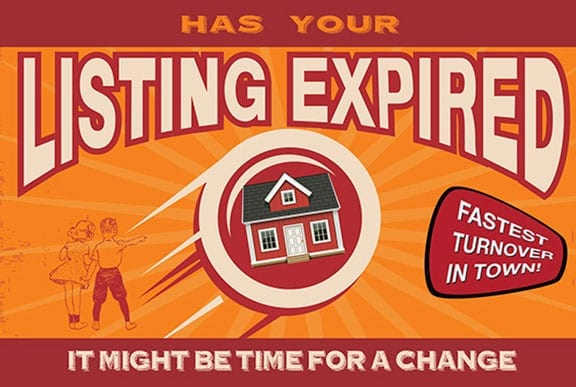
A home purchase is a complex process that requires extensive paperwork and disclosures. Good agents can help you navigate the process and avoid any pitfalls. They will be able to give valuable insight into the market and local area to help you sell your home quickly for the best price.
A listing agent can represent both the seller and buyer. This is called dual agency. Dual agency can be a cost-saving measure that requires the buyer to pay a commission. However, this can lead to buyers being turned away and the home staying on the market for a longer time.
A great agent will perform a comparative market analysis, and then recommend a listing price that is appropriate for current market conditions. The right price can increase the chances of your home selling quickly and maximize your profit. You can avoid the "seller’s market" by choosing a price that is competitive and preventing your home's stagnation.

A great listing agent can screen potential buyers for your benefit. They can help you determine which homes are worth your time and which aren’t. They can help you close your deal faster. If you need to sell your house quickly, this can be a huge advantage. They can help with mortgage pre-approval. They can also organize tours that allow prospective buyers to see your property.
Great agents will take care of all the above and answer any questions. They will be able to recommend the best marketing strategies for you to attract buyers and to sell your house at the highest price. They can provide advice on staging your home and the best repairs to make. They can coordinate open house coordinations and professional photography, if necessary.
A good listing agent will know the local housing market, the MLS, and what the competition is doing. They can tell you the best way to prepare your house for sale and the ways to avoid potential pitfalls. They can also offer advice on how to price your home, which is a must in today's market.
Having a listing agent isn't always necessary, especially if you live in a small town or have been out of the market for a while. Do your homework before you hire an agent. You can review the track record of agents and their reviews. Also, ask for recommendations from family and friends.

A great agent to represent your home is an important step in the home-selling journey. This can help you avoid losing out on a deal and ensure a stress-free closing. The listing agent is a central point of contact throughout the whole process. They can help you achieve a positive home-selling experience.
A good agent will be able give you tips and tricks on how to price your property, as well what to expect during negotiations. A good agent can help you stage your home and suggest simple repairs that will increase its value.
FAQ
Do I need to rent or buy a condo?
Renting is a great option if you are only planning to live in your condo for a short time. Renting lets you save on maintenance fees as well as other monthly fees. A condo purchase gives you full ownership of the unit. The space is yours to use as you please.
How much money will I get for my home?
This varies greatly based on several factors, such as the condition of your home and the amount of time it has been on the market. Zillow.com reports that the average selling price of a US home is $203,000. This
What should I look out for in a mortgage broker
Mortgage brokers help people who may not be eligible for traditional mortgages. They compare deals from different lenders in order to find the best deal for their clients. There are some brokers that charge a fee to provide this service. Others offer no cost services.
Can I afford a downpayment to buy a house?
Yes! There are programs available that allow people who don't have large amounts of cash to purchase a home. These programs include FHA, VA loans or USDA loans as well conventional mortgages. Visit our website for more information.
What should you consider when investing in real estate?
The first step is to make sure you have enough money to buy real estate. If you don't have any money saved up for this purpose, you need to borrow from a bank or other financial institution. It is also important to ensure that you do not get into debt. You may find yourself in defaulting on your loan.
You should also know how much you are allowed to spend each month on investment properties. This amount must include all expenses associated with owning the property such as mortgage payments, insurance, maintenance, and taxes.
You must also ensure that your investment property is secure. It would be a good idea to live somewhere else while looking for properties.
Is it better for me to rent or buy?
Renting is typically cheaper than buying your home. It is important to realize that renting is generally cheaper than buying a home. You will still need to pay utilities, repairs, and maintenance. A home purchase has many advantages. You will have greater control of your living arrangements.
What is a reverse loan?
Reverse mortgages are a way to borrow funds from your home, without having any equity. It works by allowing you to draw down funds from your home equity while still living there. There are two types available: FHA (government-insured) and conventional. Conventional reverse mortgages require you to repay the loan amount plus an origination charge. FHA insurance covers your repayments.
Statistics
- This seems to be a more popular trend as the U.S. Census Bureau reports the homeownership rate was around 65% last year. (fortunebuilders.com)
- Some experts hypothesize that rates will hit five percent by the second half of 2018, but there has been no official confirmation one way or the other. (fortunebuilders.com)
- 10 years ago, homeownership was nearly 70%. (fortunebuilders.com)
- Based on your credit scores and other financial details, your lender offers you a 3.5% interest rate on loan. (investopedia.com)
- This means that all of your housing-related expenses each month do not exceed 43% of your monthly income. (fortunebuilders.com)
External Links
How To
How to Find an Apartment
Finding an apartment is the first step when moving into a new city. This involves planning and research. This includes researching the neighborhood, reviewing reviews, and making phone call. There are many ways to do this, but some are easier than others. These are the steps to follow before you rent an apartment.
-
It is possible to gather data offline and online when researching neighborhoods. Online resources include websites such as Yelp, Zillow, Trulia, Realtor.com, etc. Online sources include local newspapers and real estate agents as well as landlords and friends.
-
Review the area where you would like to live. Yelp. TripAdvisor. Amazon.com all have detailed reviews on houses and apartments. You might also be able to read local newspaper articles or visit your local library.
-
Call the local residents to find out more about the area. Talk to those who have lived there. Ask them what they liked and didn't like about the place. Ask them if they have any recommendations on good places to live.
-
You should consider the rent costs in the area you are interested. Renting somewhere less expensive is a good option if you expect to spend most of your money eating out. On the other hand, if you plan on spending a lot of money on entertainment, consider living in a more expensive location.
-
Find out information about the apartment block you would like to move into. It's size, for example. What's the price? Is it pet-friendly? What amenities does it offer? Are you able to park in the vicinity? Do tenants have to follow any rules?